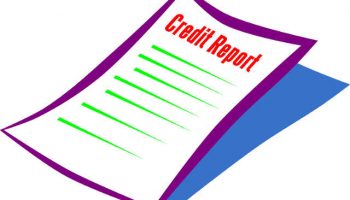Every time that someone looks at your credit report, the inquiry is noted. If you have lots of inquiries on your report, it may appear that you are shopping for several loans at once – or that you have been rejected by lenders. Both make you appear a poor credit risk and may affect your credit score. This means that you should be careful about who looks at your credit report. If you are shopping for a loan, shop around within a short period of time, since inquiries made within a few days of each other will generally be lumped together and counted as one inquiry.
You can also cut down on the number of inquiries on your account by approaching lenders you have already researched and may be interest in doing business with – by researching first and approaching second you will likely have only a few lenders accessing your credit report at the same time, which can help save your credit score.
Beware of online loan rate comparisons.
Online loan rate quotes are easy to get – type in some personal information and you can get a quote on your car loan, personal loan, student loan, or mortgage in seconds. This is free and convenient, leading many people to compare several companies at once in order to make sure that they get the best deal possible.
The problem is that since online quotes are a fairly recent phenomenon, credit bureaus count each such quote estimate as an “inquiry.” This means that if you compare too many companies online by asking for quotes, your credit score will fall due to too many “inquiries.”
This does not mean that you shouldn’t seek online quotes for loans – not at all. In fact, online loan quotes are a great resource that can help you get the very best rates on your next loan. What this information does mean, however, is that you should research companies and narrow down possible lenders to just a few before making inquiries. This will help ensure that the number of inquires on your credit report is small – and your credit rating will stay in good shape.
More than one credit report
Most people speak of having a “credit score” when in fact most people have at least three or more scores – and these scores can vary widely. There are three major credit bureaus in the country that develop credit reports and calculate credit scores. There are also a number of smaller credit bureau companies.
Plus, some larger lenders calculate their own credit risk scores based on information in your credit report. When repairing your credit score, then, you should not focus on one number – at the very least, you need to contact the three major credit bureaus and work on repairing the three credit scores separately.
Closing Credit Accounts
This seems like a contradiction, but it really is not. Many people think that to improve their credit score, they just have to pay off some debts and close their accounts. This is not exactly accurate. There are several reasons to think carefully before closing your accounts.
First, if you close an account you need (for example, if you close all your credit card accounts) then you will have to reapply for credit, and all those inquiries from lenders will cause your credit score to actually drop.
Secondly, most credit bureaus give high favorable points to those who have a good long-term credit history. That means that closing the credit card account you have had since college may actually hurt you in the long run. If you have credit accounts that you don’t use or if you have too many credit lines, then by all means pay off some and close them. Doing so may help your credit score – but only if you don’t close long-term accounts you need. In general, close the most recent accounts first and only when you are sure you will not need that credit in the near future. Closing your accounts is a bad idea if:
1) You will be applying for a loan soon. The closing of your accounts will make your credit score drop in the short term and will not allow you to qualify for good loan rates.
2) Closing your accounts will make your overall debt balance too high. If you owe $10 000 now and closing some accounts would leave you with only $1000 of possible credit, you are close to maxing out your credit – which gives you a bad credit rating.
In the short term, closing accounts will lower your credit score, but in the long run it can be beneficial.





